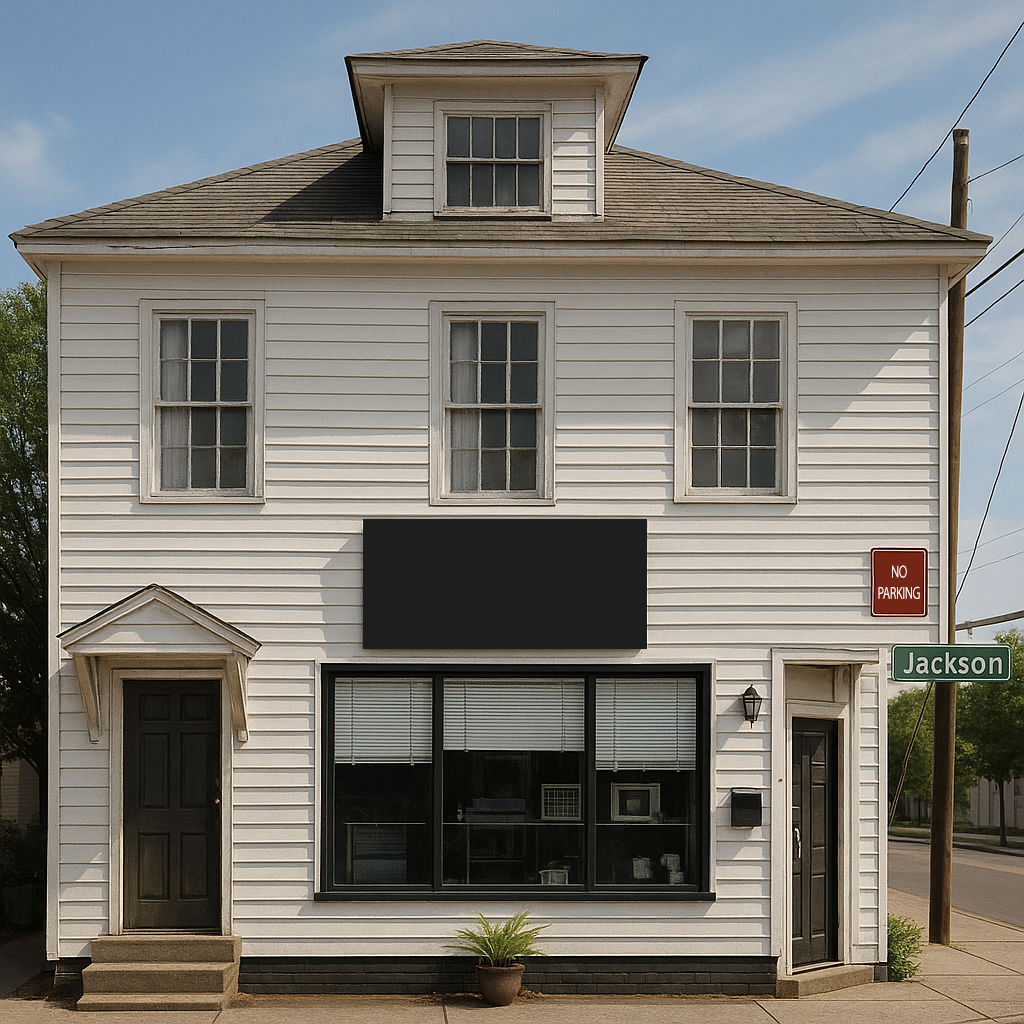Stough Furniture Store
Stough Furniture Store
by Geoff Stough
Stough Furniture Store was not one of the larger furniture stores in Montgomery, however, it was a fixture of the community and served people of all economic standings and races. Owned by my grandfather, Cabott Stough (referred to as “Pappy” by the grandchildren), for over thirty years, the store hosted some of the most fascinating historical figures of the 20th century.
The site of the original store was on the corner of Jackson and High Streets. He later moved the store further east on High. The locations of both stores placed him, along with Jewish, Greeks, and other nationalities, in the black community of Centennial Hill. This was not a unique situation in Montgomery. Monroe Street had the same eclectic presence of businessmen.
Pappy extended credit, not just to whites, but to blacks, giving many the chance to purchase furniture and other household goods for their homes. The decision to extend credit to blacks during a time when it was not a popular decision to some, earned him much respect within the black community.
The Civil Rights movement took place while the store was located on Jackson Street. Although my grandfather was respected within the black community, a small demonstration of blacks took place in the area of the store, threatening to burn non-black businesses. Someone placed a telephone call to a young pastor who lived on Jackson Street named Martin Luther King. King arrived at the furniture store and began to speak to the crowd. He reminded them that my grandfather was one of the only men in Montgomery to offer credit to blacks and if it were not for him, many of them would not have furniture in their homes. The crowd soon dispersed and my grandfather’s store was saved.
During the time the furniture store was open, my grandfather was visited by, and was able to make friends with people from all walks of life. Some of the more notable were Joe Lewis, all of the governors from Governor Patterson through Wallace, and Truman Capote, who was a frequent visitor on his trips to Montgomery. Pappy even wrote a song with his good friend Hank Williams at Chris’ Hotdogs, which is still owned by my family.
As I write this, two interesting stories come to mind. In the early days of the store, a young white man moved to Montgomery without any possessions. No one would extend credit to him, except my grandfather. Years later, Pappy received a telephone call asking if he would like to come look at a house and purchase the contents for the store, which was not uncommon. As Pappy walked through the house, he told the homeowner the pieces in the home were quite valuable and he would not be able to pay their worth and make a profit. The man asked how much he could pay, my grandfather told him, and the homeowner accepted. When my grandfather asked why he would accept such a small amount for items he could easily sell at a higher price, the man reminded him of the kindness he showed to him so many years earlier. As it turned out, the penniless young man went on to become a highly successful investment banker and wanted to repay my grandfather for his kindness.
The second story took place much later. In March of 1995, Pappy made his last trip to the Sahara for lunch. While he was eating, one of the black waiters came over to his table and asked if he was Mr. Stough who owned “the furniture store.” My grandfather told him he was and the waiter shook his hand and told him “thank you” for his generosity in helping him buy furniture for his family when he was a young man. Pappy smiled at the waiter’s comments and remarked to my aunt what a special day it had been. He died just a few weeks later.


